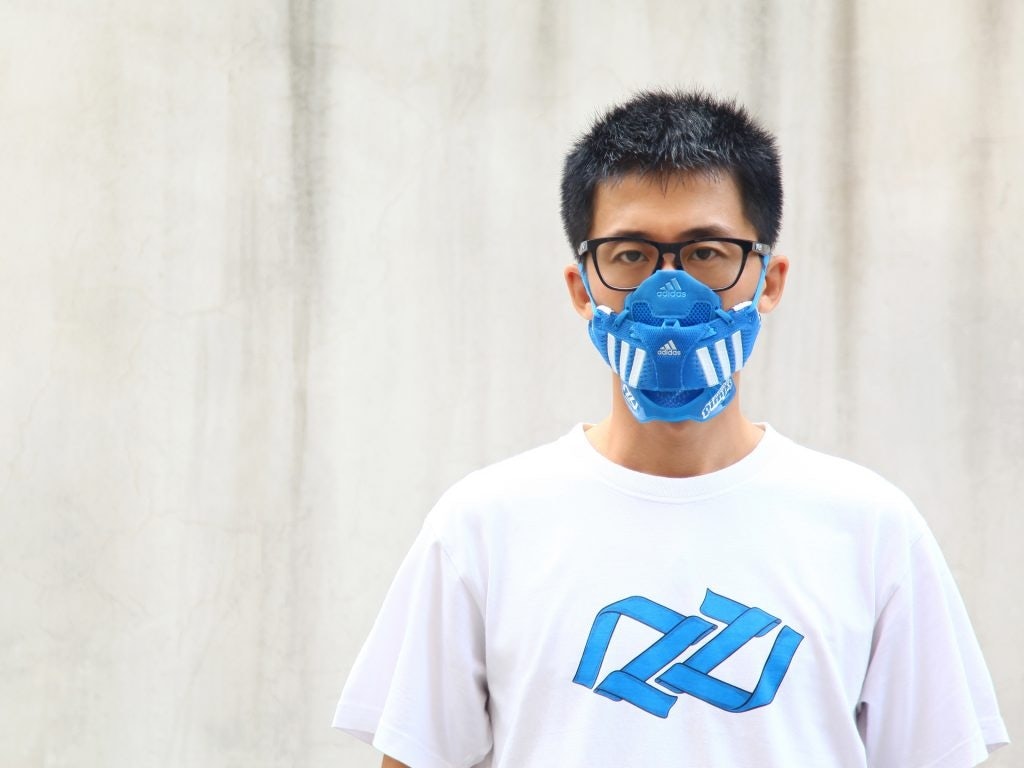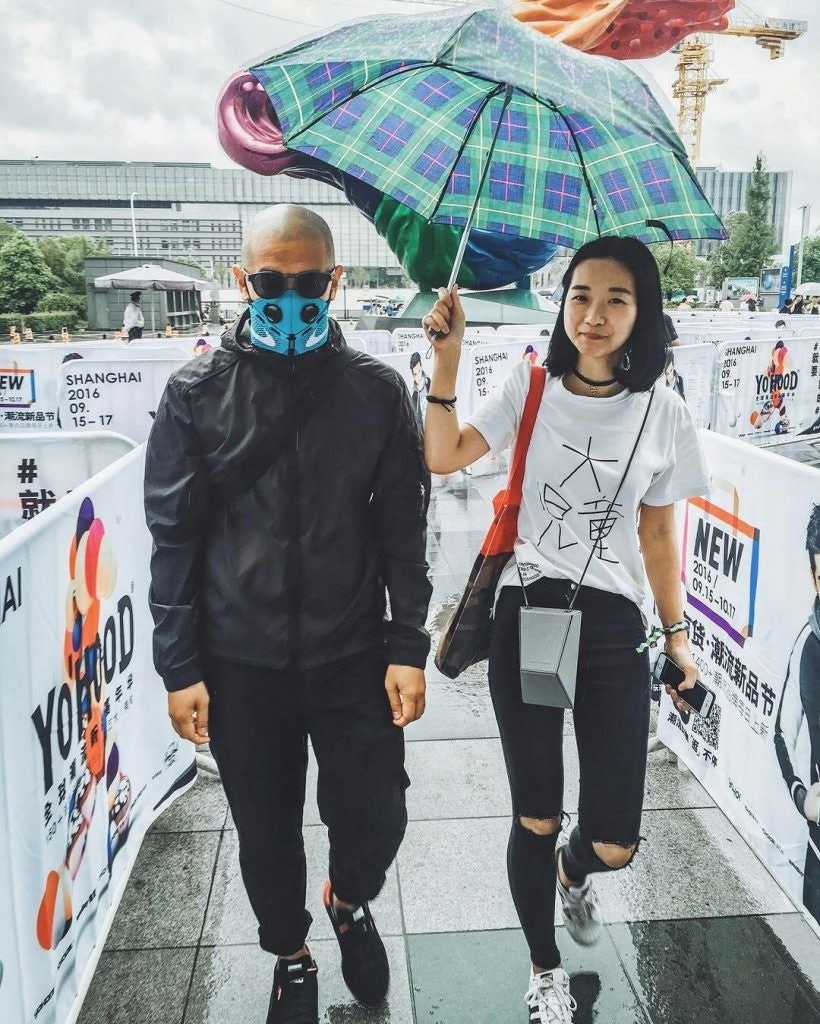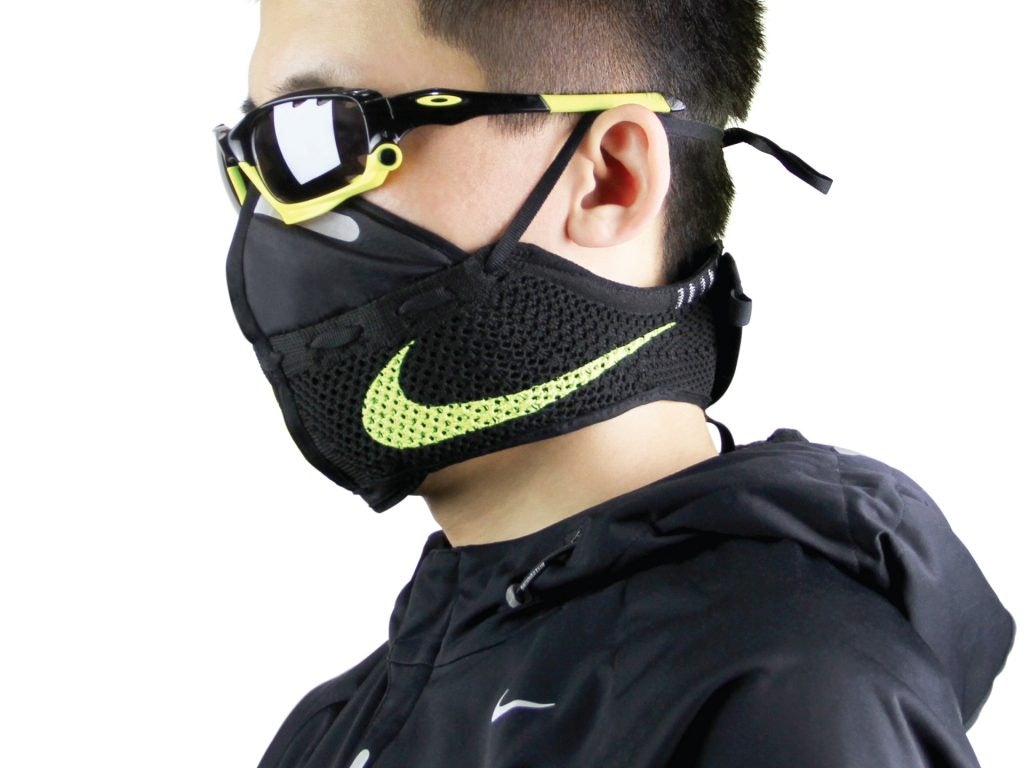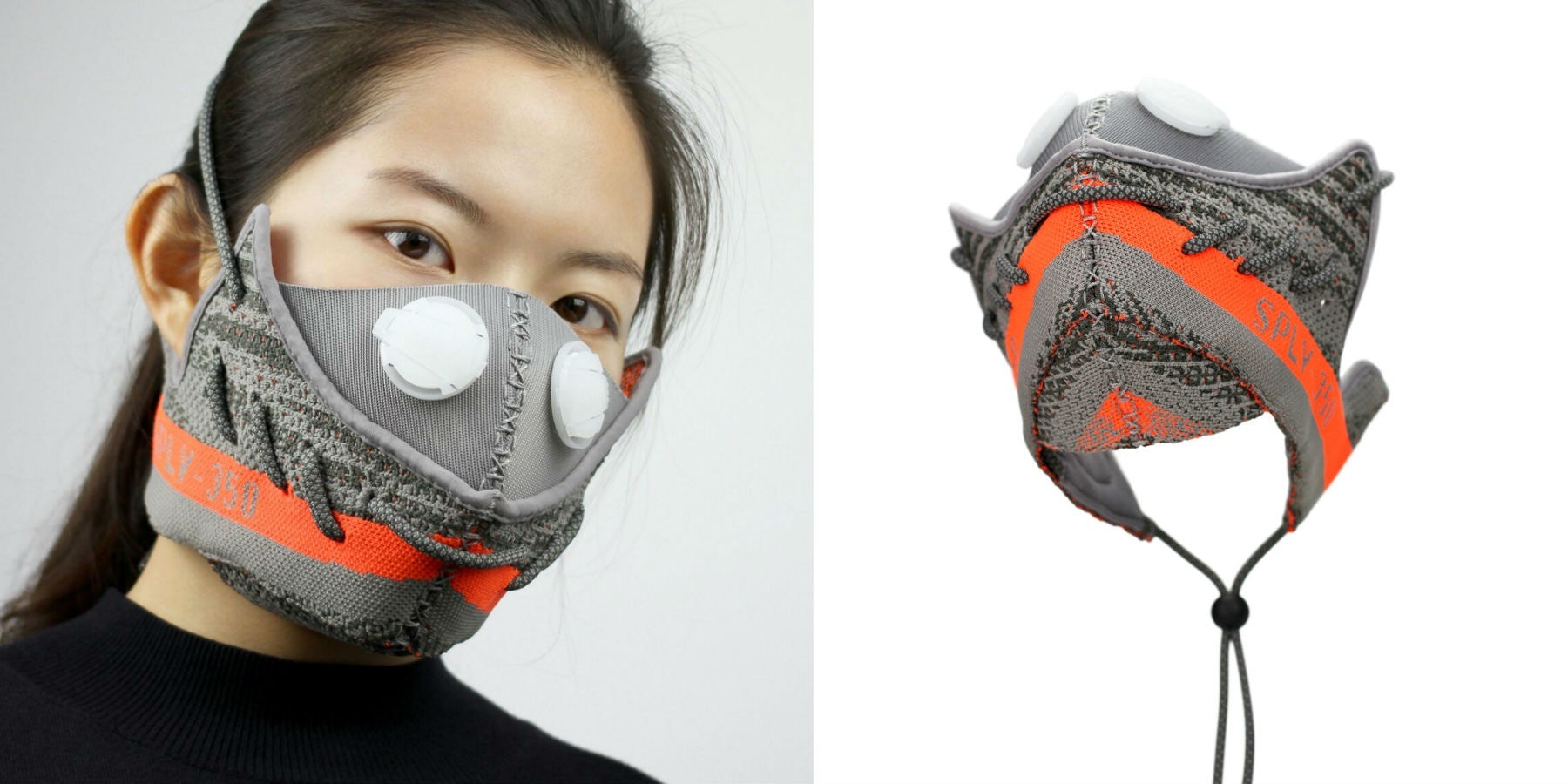Special-edition Yeezy sneakers have commanded huge prices in the United States, with some shoe obsessives going so far as to bid more than $10,000 for a pair of Yeezy Boost 350s on eBay. In China, this craze comes in the form of pollution masks—more specifically, a mask created from a dismantled pair of Yeezy Boost 350 V2s that drew a bid of more than US$5,000 on eBay China.
The mask's designer, who has likely broken the hearts of those wanting their own hard-to-find pair of Yeezys intact, is Zhijun Wang, a sneaker specialist and former marathon runner who wants to contribute to the dialogue on pollution in China by giving the ubiquitous air filter mask a trendy twist.

I met Wang on, ironically, one of the most polluted days of the fall in the capital, when the air quality index PM2.5 reading had surpassed 300. Wang had brought with him a tote bag full of just about every air mask he had ever created, all made from sneakers, and most fully functioning, fitted with 3M filters from the local convenience store. The one that had drawn an exceptional amount of hype was crafted from two halves of Yeezy’s orange and gray primeknit uppers, its signature “SPLY 350” branding visible on either side. Its debut, along with his other work, garnered attention from a long list of media outlets around the globe, from the likes of High Snobiety, sneaker blog Nice Kicks, Complex, and Wang's sneaker idol Jeff Staple of menswear brand and creative agency Staple Design. (Yeezy founder Kanye West, Wang said, hadn't been among those who contacted him after he released the mask.)
In total, Wang has made about 20 unique masks, and the hype he has received has attracted several business offers from the United States, but Wang said he turned them all down, citing the fact that he felt manufacturing masks for the masses for money wasn't the point. “It's not a business, it's an issue,” he said. “They see the opportunity from the people, but they don't care about improving the situation.”
Wang, who prior to working for himself as a designer did graphic design for Saatchi & Saatchi, first began experimenting with re-purposing sneakers as pollution masks in 2014. “I was a runner,” he said. “I liked running at night around the Forbidden City. It was a cool environment, and local, near my home. One day I noticed the air was not clean, so I wanted to check out why.”
That year, President Xi Jinping made an unprecedented announcement about the severity of the country's air quality problem, and one year before, China's state media organizations began picking up steam in their reporting on Beijing's pollution. Still, since then, completely open environmental discussion is, at times, limited, and artists and designers have resorted to more creative outlets to express their response to the situation. For example, 2014 was also the year that fashion designer Chi Zhang decorated his womenswear collection with pollution masks and famously had models wear them at his Beijing fashion show.
Prior to 2014, Wang had already been experimenting with doing custom designs for sneakers and still does. His main focus as a designer is giving kicks a Chinese culture-infused facelift, so earlier this year, he took it upon himself to do a Year of the Monkey edition of Nike Air Force 1s, his fifth Chinese Zodiac creation. Wang said he's also a huge fan of the work of Jeff Staple, a Chinese-American designer whose real name is Jeff Ng, and honors him with bespoke shoes, including a customized pair of Adidas Originals Stan Smiths and Adidas Springblades.

Embarking on a pollution mask was an entirely different matter as Wang challenged himself to make a product that was both functional and stylish. For his first, he used a panel from a Nike jacket and combined it with a Nike Flyknit racer silo shoe. His next one was exclusively made up of a Nike shoe, with the back giving support to the mask, the side panels wrapping around the jaw, and the laces securing it behind the head. It wasn't long before some brands began sending him their latest releases to reconstruct into masks, and his masks also started appearing in collaborations, including this one with Swatch.
But in other cases, like with the Yeezys, he takes it upon himself to dismantle valuable, collectible pairs of sneakers. He said the process to make one mask takes about five days, and now, he can create the masks without sketching them out.

When wealthy (and aspiring) Yeezy consumers ogled at his creations, Wang said he's careful to remind himself they're likely mainly concerned with aesthetics “on the surface” and that China “has a long way to go” when it comes to making purchases influenced by environmental consciousness, a sentiment shared by other leaders in China's fashion and design industries. Wang said he thinks luxury consumers as a whole aren't ready to be concerned about the environment just yet. “Most wealthy people are just the owners of money,” he said. “They're still not on that level.”
He does take victories where he can. He said his $5,030 bid on eBay China showed him there is potential in just how many people care about his work. On his post about the bid on Instagram, Wang said, “It's crazy! Totally comes as a surprise.”
“People are crazy, the feedback is crazy, but I'm not crazy,” he said. “I know what I want to do. Sometimes, through the real feedback from the people, I can see some tiny changes. I hope that more people can get the positive point to care about the environment from my work.”
